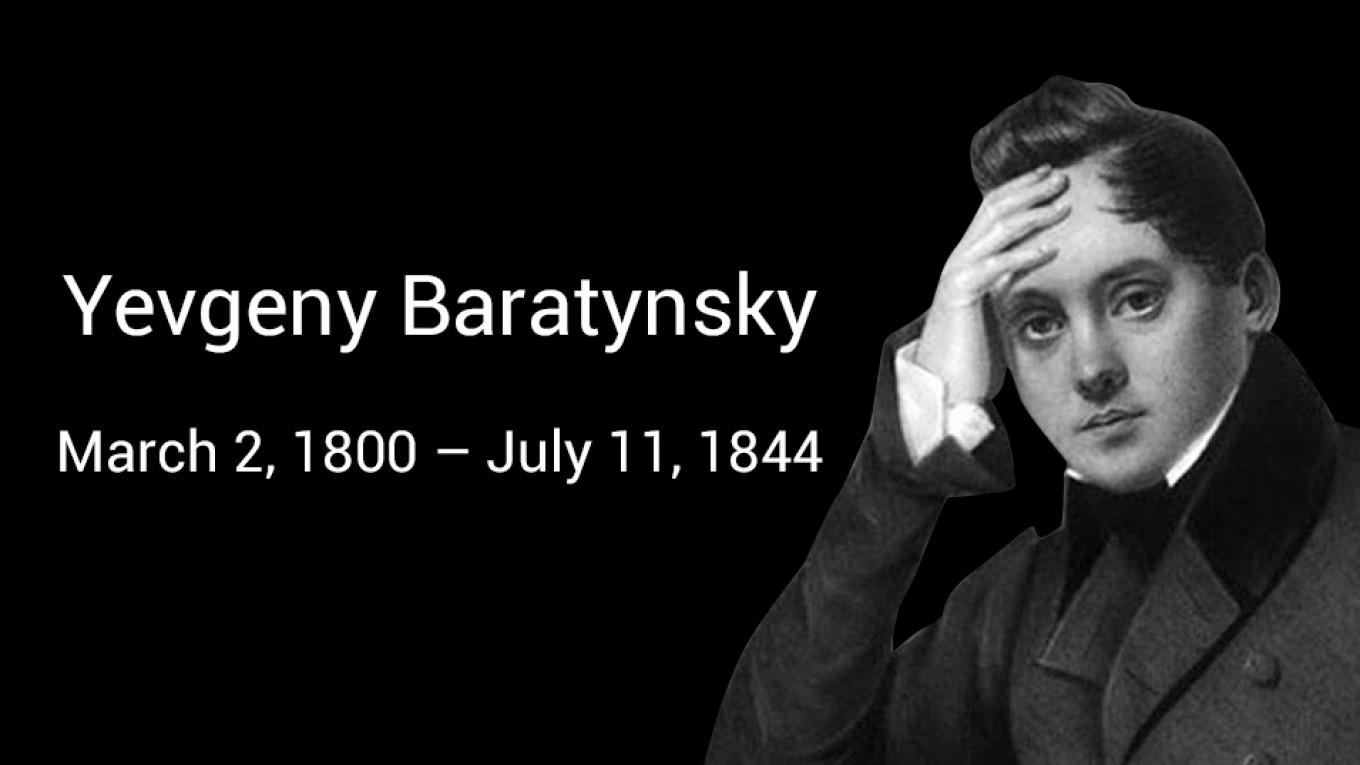Russian poet and translator Yevgeny Baratynsky was born on March 2, 1800 and spent his childhood on his family’s estate in the Tambov region of southwest Russia. The son of a retired lieutenant general, Baratnysky attended the Page Corps, an elite military academy which prepared sons of noble families for military leadership. At age 15, he was expelled for stealing a snuffbox. After spending three years in the countryside, he joined the army as a lowly private, the only rank still permitted him after his expulsion.
He began writing poetry in Russian and French during his school years. His poetry was influenced by military service in Finland, which inspired both his love of nature and his deep melancholy at alienation from his homeland. The landscapes of Finland found expression in his poems, particularly in “Eda” (1926). One of Baratynsky’s major themes was man’s alienation from nature with the rise of industrialization. In this he went against the grain of popularity at the time; Decembrist poets in particular were often unsatisfied with his work due to its lack of social themes.
Although he was highly praised by Pushkin, most of his contemporaries failed to appreciate him, and Baratynsky was an obscure figure when he died of a sudden illness in Naples on July 11, 1844. But a century later he was rediscovered by Anna Akhmatova and Joseph Brodsky. His complete works were first published in the twentieth century. Now he is remembered as a philosophical poet with a brilliantly precise poetic style.
A Message from The Moscow Times:
Dear readers,
We are facing unprecedented challenges. Russia's Prosecutor General's Office has designated The Moscow Times as an "undesirable" organization, criminalizing our work and putting our staff at risk of prosecution. This follows our earlier unjust labeling as a "foreign agent."
These actions are direct attempts to silence independent journalism in Russia. The authorities claim our work "discredits the decisions of the Russian leadership." We see things differently: we strive to provide accurate, unbiased reporting on Russia.
We, the journalists of The Moscow Times, refuse to be silenced. But to continue our work, we need your help.
Your support, no matter how small, makes a world of difference. If you can, please support us monthly starting from just $2. It's quick to set up, and every contribution makes a significant impact.
By supporting The Moscow Times, you're defending open, independent journalism in the face of repression. Thank you for standing with us.
Remind me later.






